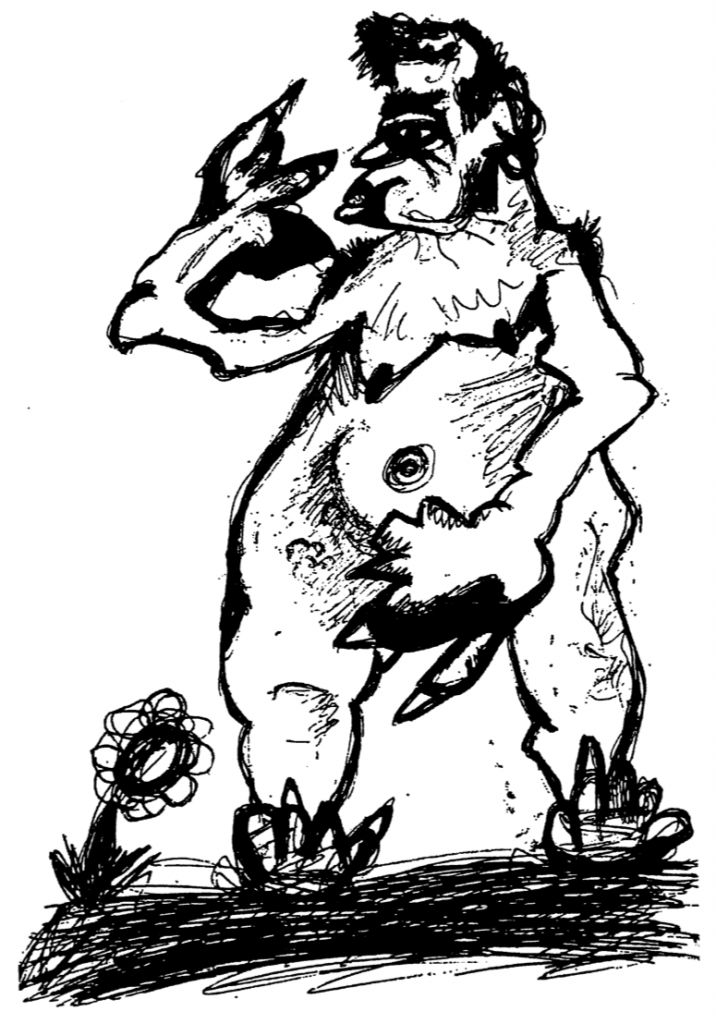
I've said it before and I'll say it again. We've reached peak Deleuze. The wise move, I suspect, would be to institute a five year moratorium for anyone working in media and cultural theory. This goes for the Deleuzian "deep catalog" as well including Simondon and Spinoza. It's just getting out of hand.
The straw that broke the camel's back for me was reading Elizabeth Grosz's latest book and teaching it in seminar. A few months ago I cited Grosz in the context of The Swervers, a school of thought -- some of them Deleuzeans but not all -- who promote ethics and aesthetics as first philosophy and who gravitate toward analog themes such assemblage, affect, sensation, process, becoming, chaos, and accident. And I recently posted some longer reflections on Grosz's methodological profile. I certainly don't intend the current post as a kind of character assassination aimed at Grosz, who is unquestionably one of the most interesting and innovative thinkers working today. Her 2007 lecture at the Feminist Theory Workshop is but one example of how clearly she understood the state of the field at the time, and how much she had thought about where it should go in the future. (And looking back now ten years later she was essentially correct.) I see her work as indicative of a larger trend, and it's this larger trend that interests me.
I've previously expressed my concern about the "nature's largess" that sits at the heart of swerver theory. Sensitive to these themes -- perhaps overly sensitive -- my antennae were out and I kept a note of all the times Grosz would endorse logics of affirmation, excess, enhancement, maximization, and so on. Stylistically I noticed that she would lapse into sequences of terms, whether in one sentence or clustered in a paragraph on the same page. Here are some of the sequences that caught my eye:
• “live optimally...appropriate...thrive” (48)
• “maximize...enhance...expansion” (86)
• “greater...greater...maximization” (132)
• “enhance and maintain...intensify...go to the limit” (134)
• “affirmations...enhancement...intensification...maximization” (149)
• “affirm, enhance, and intensify” (153)
• “maximize...health, well-being, and expansion...capacity for more...intensify...excesses” (157)
• “an excess...the extra 'charge'” (174)
In the future I predict intellectual historians will identify something like "2000s Realist Theory," just as one might identify late 1960s Poststructuralism or 1980s New Philosophy. And one key characteristic of this approach will be the way in which it excludes the negative in favor of affirmation and sublime positivity through expansion and intensification. A friend commented dryly that this amounts to a kind of Polyphonic Spree for philosophy. I'm not sure that's the right characterization, but the point is well taken. (I suspect this is one reason why an author like Andrew Culp was keen to push Deleuze back in the other direction, back toward a more negative or "dark" Deleuze.)
Or maybe the best name would be the "Red Bull sublime," to borrow Anne C. McCarthy's appealing formulation. There's certainly an intoxicating sense of intensity in this language. Affirm. Enhance. Maximize. Optimize. Expand. I love joy and affirmation as much as the next person. And lord knows we all need to care for ourselves and care for others in these dark times. But I worry that the assumption of ontological if not subjective largess leads in a direction we might not want to follow. Specifically, it puts Grosz on a collision course with fields such as disability studies, afro-pessimism, or non-philosophy -- essentially anyone focusing on insufficiency, finitude, diminishment, nihilism, negativity, de-growth, generic personhood, and other related themes. Long a facilitator of innovative new currents in theory, today such Deleuzian maximalism stands in direct opposition to some of the most important questions we face: how to think blackness as structural nihilism; how to conceive of an insufficient personhood rather than an engorged one; or how to diminish human planetary impact rather than expand it.
I'm thinking specifically of Daniel Colucciello Barber's recent dialog with Jared Sexton around the question of black negativity. Or in a different sense, the writings of François Laruelle and his mechanisms for "de-growing" philosophy and thinking instead according to axioms of insufficiency and finitude. Or, again in a different way, Robert McRuer's work on what he calls "compulsory able-bodiedness." Or even Lauren Berlant's powerful analysis of "slow death" and the complex affective circuits of counter-flourishing. And of course there are many other voices one might add to this conversation.
In other words, I think Eve Tuck might have had the right idea. It's time to break up with Deleuze.